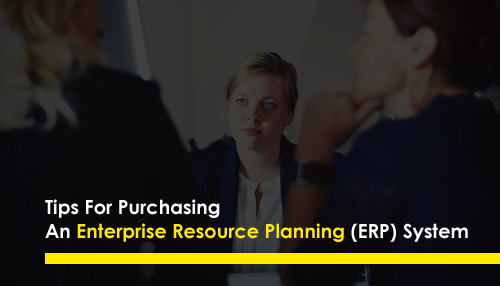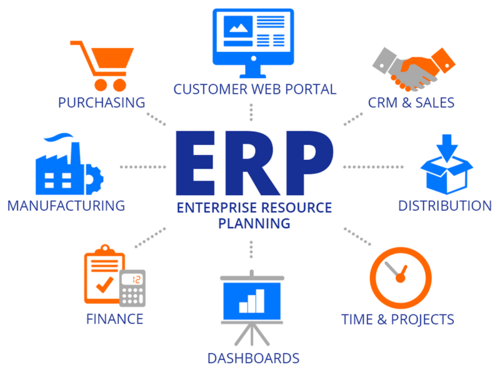Today, there are more enterprise resource planning (ERP) systems available than ever. Typically, businesses in need of one of these systems begin their search by looking for a program that is designed specifically for their industry. Cloud-based programs are also a popular option. In most cases, however, companies aren’t exactly sure what they need, making it hard to figure out which program is the best option. If you are shopping for an ERP system software, the eight tips below should help make the selection process easier.
Involve Upper Management In The Decision
Before investing in a new ERP system or upgrading your existing system, sit down and talk things over with your company’s management. Find out how much money you have available, what the overall timeframe is for the project, and what features the program needs to have. Having all of this information upfront is the best way to avoid costly mistakes. At this point in the process, it is also a good time to remind everyone that it takes time to find the right system and that the process can’t be hurried.
Make Sure All Departments Are Represented
To be successful, an ERP system needs to meet the needs of every department in your company. In order to accomplish that, you need to talk to a representative from every department at your place of business. This will allow you to get a much better sense of the features that the system needs to have. People are also much more likely to use a system willingly if they have input regarding its selection.
Know The Needs Of Your Company
Out of all of the tips, this one is the most essential. In order to buy a system that will truly work for your business, you need to know how your company works. Every internal process should be carefully documented. Before taking the time to document each process yourself, see if the information is already available through previous records. Once you have gathered the information you need, carefully review it, looking for redundancies or areas that could use some cleaning up. Automation is one of the primary goals of using these systems. Before that can take place, however, internal processes need to be as clean and effective as possible.
This is also a good idea to search for any processes that are good candidates for automation. As you evaluate each process, consider what information is required and how that information will find its way into the system
This is also the time to discuss areas where your company is strong and areas where it is weak. Ideally, the ERP system you choose should help strengthen any weak areas without harming any areas that are already strong.
Evaluate How A New ERP System Will Interact With Your Current Technology
When you purchase a new ERP system, you may need to integrate it with your existing system. Be sure to discuss the change with the IT department before selecting a system. In most cases, they will have a lot to say regarding the technological requirements of getting the new system to work with the old one.
Some of the questions that you may want to ask include the following:
* Which existing systems will the ERP program need to interact with?
* How much money is available for IT-related needs?
* How is data storage currently handled and how will it be handled in the future?
Determine Which Processes Can Be Modified And Which Need To Remain The Same
Ultimately, the purpose of an ERP system is to simplify processes. No matter how well the system you choose fits your organization, you will always need to make some changes after it is implemented. Alternatively, you can use a service like abakion.com which has a lot of the tweaks businesses like to do as standard. It supports all processes but is a standardized solution and easy to maintain.
Prior to implementation, sit down and figure out which processes can be modified and which ones have to be left the way they are. This will help ensure that the system you choose is appropriate for the needs of your business.
Look For A System That Is Flexible
All companies go through changes. The ERP system that you choose should be flexible enough that it can grow and change with your business. For instance, if your business suddenly expands, is the system capable of keeping up with demand? Alternatively, if you lose a major client, can you scale down the program so that it is still appropriate for the needs of your business? Ideally, the system that you choose should be capable of being scaled up or down as necessary without having to invest in a completely new system. Going with a flexible system is the best way to ensure that you don’t outgrow it in the future.
Analyze Expenses
Figuring out the cost of an ERP system can be challenging since so many factors come into play. Don’t only focus on the upfront cost of the system. Instead, take into account ongoing expenses. Don’t forget to include the cost of training and support, as well. Although it can be difficult to come up with accurate figures for these expenses, it is essential when figuring out the true cost of a new system.
Some of the primary costs that you should include in your estimate include:
* Implementing the program
* Maintaining the software through upgrades and updates
* Program support
* Extra hardware
* Technological updates
* Licensing or renewal fees



